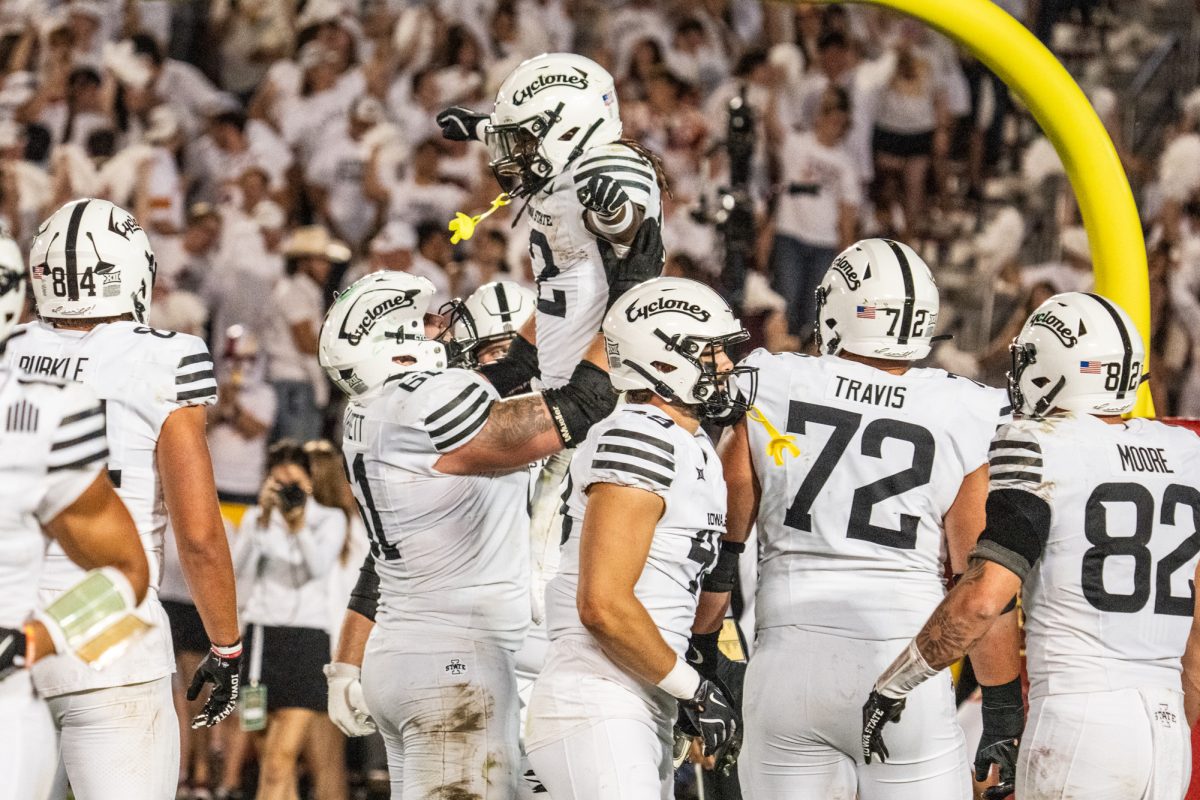How does stacking the deck promote equality?
February 22, 1999
Black History Month is drawing to a close at ISU. I imagine the university has sponsored a film series, convocation or similar divertissement to commemorate this annual event.
I regret I was unable to attend any of these functions. It’s not that I have anything against Black History Month, of course.
Maybe I do have something against this month. Maybe there is something wrong with giving special treatment to people solely on the basis of their ethnicity. It seems un-American.
Like affirmative action, it smacks of racism. Is it all part of the current barrage of political correctness?
The PC police say we have to be sensitive to all groups no matter how few their numbers, weird their belief systems or depraved their practices.
If they get their way, eventually we’ll have a “National Satan-Worshipper History Month.”
On that glorious day, our children won’t be permitted to mention the Bible in school. Instead, they’ll be forced to recognize “a minority group whose contribution to American history has been shamefully neglected by the history books: The Brothers of Beelzebub.”
And they’ll use our tax dollars to fund it! Is this the America we want?
Because of the color of our skin, white people are told we are responsible for the horrors of slavery. NEWS FLASH: I’m white, and I’ve never owned a slave. Nor did my parents or grandparents.
When applying to a college or interviewing for a job, should I be penalized for something that happened over a hundred years ago?
What’s past is past. I’m sorry it happened, but it has nothing to do with today.
If you’ve agreed with everything I’ve written up to this point, I owe you an apology. I was being satirical.
Like you, I am a racist. I know this because the drivel I was pouring out in the opening paragraphs of this column came very naturally to me.
Why shouldn’t it? Racist assumptions were a part of my upbringing.
They are deeply embedded in the culture that produced me.
My parents never tried to promote racism in their son. They’re loving, decent people.
Like most of white America, they’ve enjoyed the careers of Bill Cosby, Earvin “Magic” Johnson and Nat King Cole. There’s nothing wrong with that.
It is significant, however, that those names conjure images of black people with which we’re very comfortable.
They’re “white-friendly.” They don’t confront us with any of the difficulties concerning race relations in America.
If you want to see white America on the defensive, mention Malcolm X or Spike Lee. An angry black voice often produces dismay or disapproval.
Innocently, we say, “What is there to be angry about today? There are no more Jim Crow laws, no more segregated schools. Ms. Parks may sit wherever she pleases on the bus.”
But racism is alive and well in the 1990s. For its effects, try looking at our inner cities or prisons. Look at the films produced by that “liberal cabal,” Hollywood. In our enlightened times, an interracial kiss on the big screen is still taboo.
Black people are less likely to graduate, get elected, get hired, or get approved for a loan. They are more likely to be pulled over, interrogated and arrested (and sodomized with a toilet plunger in New York City).
At the Arizona Museum of Science & Technology, I once saw an exhibit describing an experiment concerning racism. It demonstrated that human adrenaline levels rise when dealing with members of other races. We make one another nervous. We’re more aggressive with members of other races.
Racism exists. We just need to recognize it rather than institutionalize it.
The typical racist of the 1990s isn’t a stereotype. He or she is not a fat, ignorant, Mississippi sheriff-by-day, Klansman-by-night, just itchin’ to lynch the first “Nee-gro” boy he sees whistle at a white woman. The average racist today is just like you and me.
When asked about affirmative action, we respond, “How does stacking the deck promote equality?”
Such a question ignores the reality that the deck is already stacked heavily in favor of whites. Whether we realize it or not, we are still the material benefactors of hundreds of years of slavery and oppression.
Our loan officers, potential employers, teachers, judges and police officers are subconsciously more kindly disposed to us because we’re white.
They think more highly of us. They can’t help it. Especially if they never own up to it.
James O’Donnell is a graduate student in painting, drawing and printmaking, from Mesa, Ariz.






